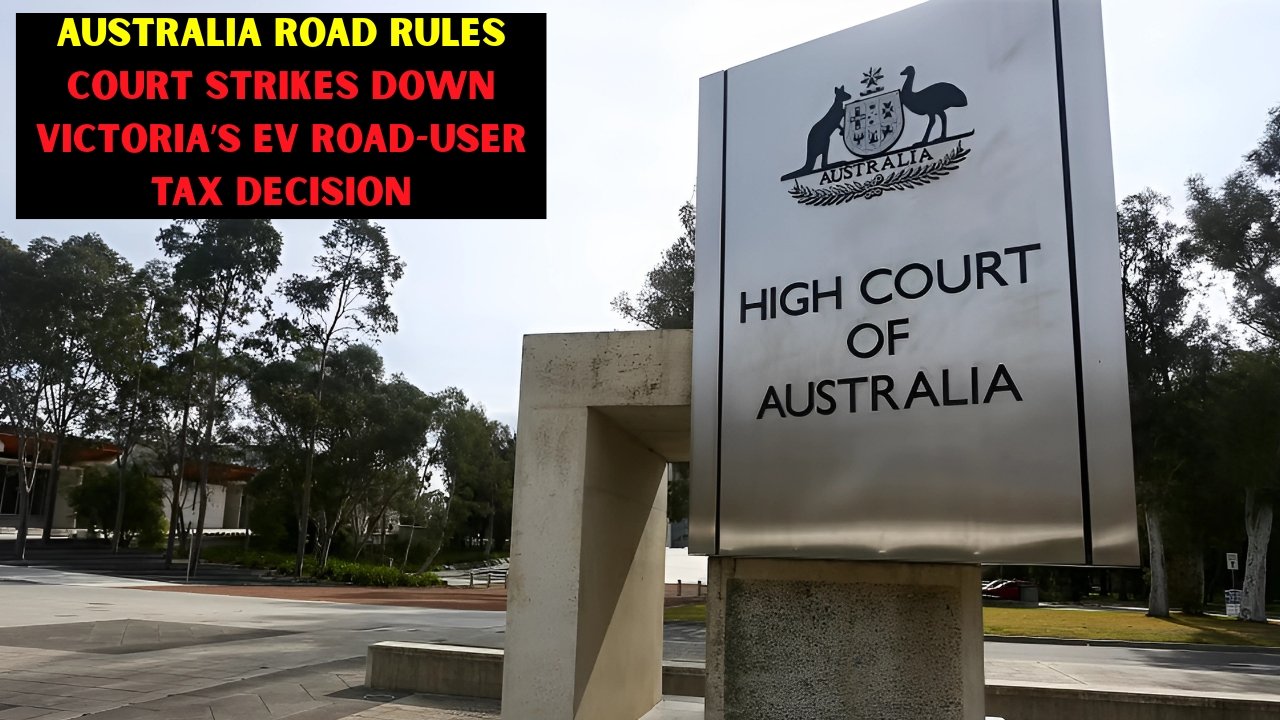Victoria’s road user tax on electric cars owed its defeat to the High Court Of Australia’s groundbreaking ruling which made the tax unconstitutional. The ruling opened the door to the anticipated evolutionary form of policy thinking on vehicle taxation and policy on the environment. This evolved jurisprudential approach was notably evoked after two Victorian electric vehicle (EV) users contested the distance based taxation on low and emission vehicles. The case substantiated the claim that the taxation overstepped the bounds of constitutional federal powers. But, it adjudicated more than just the taxation policy of the State of Victoria on electric vehicles, it reverberated the entire country’s periphery taxes.
Victoria’s EV Road User Tax
| Vehicle Type | Charge per Km | Period Active | Legal Status |
|---|---|---|---|
| Electric/Hydrogen EVs | 2.8 cents | Since July 2021 | Ruled unconstitutional |
| Plug-in Hybrid EVs | 2.3 cents | Since July 2021 | Ruled unconstitutional |
Background and Context of the EV Tax
In July 2021, Victoria introduced user tax to rechargeable electric, hydrogen and plug-in hybrid vehicles. This road user tax required drivers to pay 2.8 cents per kilometer driven and plug-in hybrid vehicles for the distance of 700 km for the taxes of driven distance and 2.3 cents per electric kilometers driven hydrogen vehicles. This was intended to supplement the loss of fuel excise tax revenue. The policy was introduced to allow equitable and balanced taxation for all vehicles for the roads, however, it was slashed down on by EV users. Alternately, it was termed on by policy of eco protection for its tremendous deterrent for the embracing the policy of clean and sustainable transport.

The Legal Challenge and High Court Decision
As with many other opposed government initiatives in the State of Victoria, the EV is also levied with tax, charge in this case, and so advanced payment is also legally litigable. The remaining owners, Kath Davies and Christopher Vander stock, conclusively won the charge contest. With a split of 4-3, the court ruled that the tax is a form of excise duty and thus is a tax that only the Federal Parliament can impose under Section 90 of the Australian Constitution. It also means that the 1974 precedent that the court’s majority relied upon was profoundly wrong in rationalizing that there is no tax upon the use and consumption of the goods which in this case includes the Electric Vehicles. The court’s decision also ruled that the EV charge that the State of Victoria implemented is unconstitutional, a form of assessment based upon the value of a tax that can be levied for the use of Electric Vehicles and its consumption.
Implications for States and EV Policy
This ruling affects other territories much beyond Victoria. Other states such as New South Wales and Western Australia, which have implemented or have considered similar EV road user charges, are likely to suspend or rethink their strategies. The ruling highlights the importance of cohesive and comprehensive national policies as opposed to disjointed and fragmented state policies that aim to sustain equitable road funding amidst the transitioning to EV. The Electric Vehicle Council hailed the decision as a win for motorists, the environment, and Australia as a whole. The Council also noted the need of encouraging EV adoption without imposing the taxes
Broader Impact on State Taxation Powers
Other than EV taxes, this ruling also opens discussions pertaining to the constitutional legitimacy of various state revenues including levies on the transfer of goods, duties on motor vehicles, and taxes on gaming machines. The dissenting judges have counterbalanced this by saying the decision to strike down the EV taxes could undermine Australia’s existing state tax framework, and the resultant legal void could be damaging to state revenues. This has triggered renewed pleas for a more cohesive approach to taxation and other cross border governance.
The Next Steps: The Commonwealth Government Should Lead
Although the decision removes the chargeable road user fee for EVs, there is the possibility of other fee structures, such as registration charges, or non-primitive excise type fees. It has been pointed out that the federal government is best placed to craft an aligned, overarching policy on road user charges that encourages decarbonization while ensuring equitable tax treatment. Such an approach would diminish ambiguity, observe the Australia Constitution’s division of powers, and speed up the shift from petrol and diesel to electric vehicles in Australia.
Common Questions
1. Why do you think the electric car tax was unconstitutional?
The tax was ruled as an excise duty and therefore only chargeable by the Commonwealth, rendering Victoria’s road user tax on electric vehicles as non-constitutional.
2. Will the High Court decision influence other states’ EV tax policies?
Yes, other states EV tax policies are likely to reconsider or abandon their plans following the High Court decision.
3. What can we expect from future taxes on road use for electric vehicles?
In the future, there will be charges that will be aligned to the system of paying for roads which may follow assertion charges as registration fees.
The High Court’s decision is an important step in Australia’s transition to a cleaner form of transport in setting the balance in equitable taxation, constitutional law, and environmental policy.[1][2][3][4]